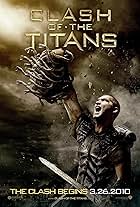Welcome to the new profile
We're still working on updating some profile features. To see the badges, ratings breakdowns, and polls for this profile, please go to the previous version.
Ratings752
mstomaso's rating
Reviews536
mstomaso's rating
Renoir made a tight little romantic, or rather anti-romantic, comedy. And an angst-ridden, oversensitive, pre-WW2 French Bourgeosie, afraid of its own shadow, saw their worst character flaws fully illuminated exaggerated and satirized. Renoir, being an extremely smart man with keen observational skills and an open mind, simple condensed what he saw into a brilliant, multilinear film and poked fun at himself and each of the ludicrous but oh so human characters he invented. Misinterpreting the film as an attack on upper middle class culture of mid-20th century France, the film was very severely criticized, banned, and, inevitably, recognized as a masterpiece. How French.
Renoir's remarkably light character study of the pre-World War II French upper class entertainingly and humorously lampoons Western ideas of liberty, gentility, idleness and - the big game itself - love. Love, in this film doesn't REALLY have any fixed rules and is shown to consist of everything from a hormonal imbalance to self-loathing and apathetic contempt to an emotion of such power and purity that it could legitimately require the ultimate sacrifice. The concept of liberty, which is sort of an understated backdrop in this film, could be poignantly mistaken for decadence and self-indulgence. And as one might predict, only the least decadent characters (the servants) appear to have goals and some semblance of self-concepts.
Renoir's masterfully written and directed piece was filmed and is set in a time where the vestiges of pre-capitalist "high culture" still had a strong influence on social mobility in France, so 21st century globalists in particular may find the stark and very overtly illusory distinctions between his lordship, his Austrian noblewoman wife and his servants to be quaint but perhaps a little alien. Set against the medium of decadence and directionlessness manifested in spurious and meaningless love/lust/sex/desire the film presents us with a cabaret of likable yet mostly despicable and extremely well-acted archetypes.
La Règle du Jeu presents a tangled web of relationships of every kind set against a social gathering at a country manor presided over by Marcel Dalio's sympathetic (and pathetic) but rather hollow lordship and his exotic lady, an Austrian noble played by Nora Gregor. Renoir himself plays the older Octave, who appears to be the only person at the party who has set himself out of the "the game" - friend to all lover of none. But even this laudable status inevitably breaks down in the tumult of rampaging aimlessness concentrated by the big party. The serving staff, though perhaps more honest and direct about themselves, are an obliquely angled mirror of the bourgeouis house guests in virtually every way. A few cross-class relationships will stick with you and are worth paying special attention to - the extremely condescending ones between the lord and his new domestic (memorably played by Julien Carette) and the lady and her chambermaid (Paulette Dubost) come to mind. In both cases, the servants have the upper hand in nearly every way, but they earn that position by subtly disguising their own wills as sound decision making by their "superiors".
La Règle du Jeu is a beautiful film. The audience is bombarded with continuous action, a very attractive and memorable cast that is in constant motion, gorgeous settings, and extremely well-choreographed and often very long continuous shots in which three or four plots are introduced, climax and close in the space of a few minutes. It deserves its reputation as a great film.
Renoir's remarkably light character study of the pre-World War II French upper class entertainingly and humorously lampoons Western ideas of liberty, gentility, idleness and - the big game itself - love. Love, in this film doesn't REALLY have any fixed rules and is shown to consist of everything from a hormonal imbalance to self-loathing and apathetic contempt to an emotion of such power and purity that it could legitimately require the ultimate sacrifice. The concept of liberty, which is sort of an understated backdrop in this film, could be poignantly mistaken for decadence and self-indulgence. And as one might predict, only the least decadent characters (the servants) appear to have goals and some semblance of self-concepts.
Renoir's masterfully written and directed piece was filmed and is set in a time where the vestiges of pre-capitalist "high culture" still had a strong influence on social mobility in France, so 21st century globalists in particular may find the stark and very overtly illusory distinctions between his lordship, his Austrian noblewoman wife and his servants to be quaint but perhaps a little alien. Set against the medium of decadence and directionlessness manifested in spurious and meaningless love/lust/sex/desire the film presents us with a cabaret of likable yet mostly despicable and extremely well-acted archetypes.
La Règle du Jeu presents a tangled web of relationships of every kind set against a social gathering at a country manor presided over by Marcel Dalio's sympathetic (and pathetic) but rather hollow lordship and his exotic lady, an Austrian noble played by Nora Gregor. Renoir himself plays the older Octave, who appears to be the only person at the party who has set himself out of the "the game" - friend to all lover of none. But even this laudable status inevitably breaks down in the tumult of rampaging aimlessness concentrated by the big party. The serving staff, though perhaps more honest and direct about themselves, are an obliquely angled mirror of the bourgeouis house guests in virtually every way. A few cross-class relationships will stick with you and are worth paying special attention to - the extremely condescending ones between the lord and his new domestic (memorably played by Julien Carette) and the lady and her chambermaid (Paulette Dubost) come to mind. In both cases, the servants have the upper hand in nearly every way, but they earn that position by subtly disguising their own wills as sound decision making by their "superiors".
La Règle du Jeu is a beautiful film. The audience is bombarded with continuous action, a very attractive and memorable cast that is in constant motion, gorgeous settings, and extremely well-choreographed and often very long continuous shots in which three or four plots are introduced, climax and close in the space of a few minutes. It deserves its reputation as a great film.
A psychology professor (Lee J Cobb) plies his trade on a psychotic prison escapee (William Holden) whose gang has invaded his home during a dinner with friends. The cat and mouse battle of nerves takes place on the fearless and disaffected professor's battleground both in the physical and mental sense - taking place in his home and in the realm of the mind. Dr. Collins is doing more than stalling for time to keep his family and friends alive. He is manipulating the weak-minded criminal. Collins is offering the killer Al Walker an unlikely chance to change his ways and a very likely illusory opportunity to return to sanity. Meanwhile, the tension mounts... consistently... throughout the film.
In this Columbia noir, Director Rudolph Maté stays extremely close to the original production of Blind Alley (directed by Charles Vidor), with some scenes so closely developed that you could very easily lose them in the earlier film. Neither film is really typical of the noir genre. Both are dark, humorless, set pieces based on a very theatrical script and some very solid dramatic acting, particularly from Cobb and Holden. Nina Foch lends strong and sensitive support as the woman who loves Holden.
Of the two, The Dark Past is the more polished film, but given the dates of production neither that nor the darker values of Blind Alley should come as any surprise.
A very solid film, which, contrary to the opinions of some reviewers, has held its entertainment value very well.
In this Columbia noir, Director Rudolph Maté stays extremely close to the original production of Blind Alley (directed by Charles Vidor), with some scenes so closely developed that you could very easily lose them in the earlier film. Neither film is really typical of the noir genre. Both are dark, humorless, set pieces based on a very theatrical script and some very solid dramatic acting, particularly from Cobb and Holden. Nina Foch lends strong and sensitive support as the woman who loves Holden.
Of the two, The Dark Past is the more polished film, but given the dates of production neither that nor the darker values of Blind Alley should come as any surprise.
A very solid film, which, contrary to the opinions of some reviewers, has held its entertainment value very well.
With strong support from Patrick Stewart and Dafne Keen, Hugh Jackman successfully pulls off a sensitive portrayal of a declining hero and his somewhat self-imposed alienation, decorated with the usual Marvel studios CGI action sequences. While the CGI sequences were as protracted as they usually are in contemporary pop culture movies, they did not detract from the film's strong emotional content and were more integrated into every level of the story than they are in most comic book adaptations.
The Wolverine, Logan, (Jackman) may reach an heretofore unrealized peace with himself and his world through his newfound relationship with a young girl who may be his daughter Laura (Keen). However, Laura is being hunted by the same evil that has hunted Logan throughout most of his life, and his Logan's other real connection to humanity, Charles Xavier (Stewart), needs more help than he can give. The most dangerous mind in the world (Xavier) teamed up with one of the most dangerous men in the world (Logan) might seem like an undefeatable juggernaut, but for many reasons, neither of these superhero legends are what they used to be. As the story unfolds, Logan's powerful defense mechanisms are challenged in ways that have, in previous adventures, been his undoing; aspects of Laura's personality and history leave the value of the central adventure wide-open to question; and Xavier's loss of the ability to control his incredible mental powers threaten to expose everything.
It really is not clear what will happen in this film until it actually does.
Thoroughly entertaining, well-acted, well-paced and surprisingly touching, Logan is one of the best films I have seen from this genre.
The Wolverine, Logan, (Jackman) may reach an heretofore unrealized peace with himself and his world through his newfound relationship with a young girl who may be his daughter Laura (Keen). However, Laura is being hunted by the same evil that has hunted Logan throughout most of his life, and his Logan's other real connection to humanity, Charles Xavier (Stewart), needs more help than he can give. The most dangerous mind in the world (Xavier) teamed up with one of the most dangerous men in the world (Logan) might seem like an undefeatable juggernaut, but for many reasons, neither of these superhero legends are what they used to be. As the story unfolds, Logan's powerful defense mechanisms are challenged in ways that have, in previous adventures, been his undoing; aspects of Laura's personality and history leave the value of the central adventure wide-open to question; and Xavier's loss of the ability to control his incredible mental powers threaten to expose everything.
It really is not clear what will happen in this film until it actually does.
Thoroughly entertaining, well-acted, well-paced and surprisingly touching, Logan is one of the best films I have seen from this genre.


























